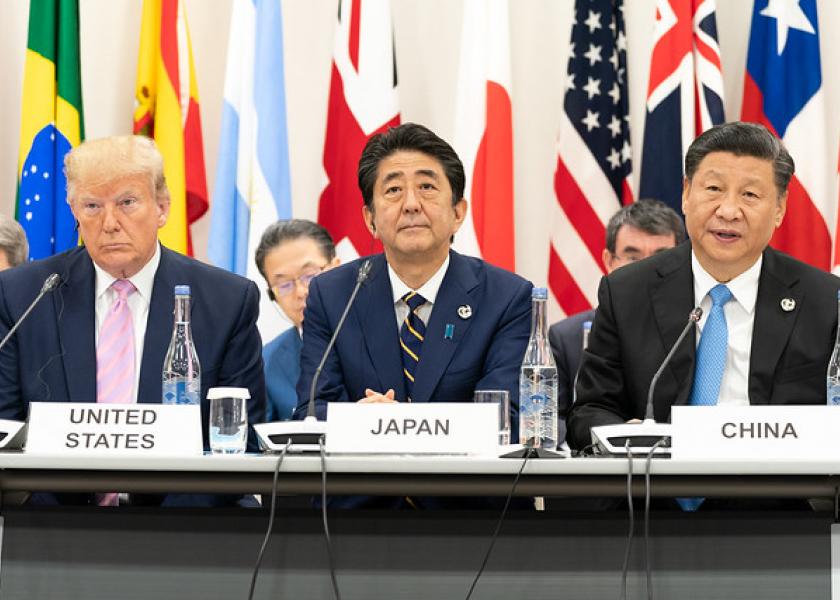Trump, Xi Hit Pause on Trade War Again for Talks on Lasting Deal

(Bloomberg) -- President Donald Trump and China’s Xi Jinping agreed to another truce in their trade war Saturday, removing an immediate threat looming over the global economy even as a lasting peace remains elusive.
The two sides have agreed to restart trade negotiations that broke down last month, Xinhua News Agency reported, adding that the U.S. agreed to put no new tariffs on Chinese goods. Trump said the U.S. would release a statement around 3:30 p.m. local time.
“We had a very good meeting with President Xi of China,” Trump told reporters after the meeting on the sidelines of the Group of 20 summit in Japan. “Excellent. I would say excellent. As good as it was going to be. We discussed a lot of things and we’re right back on track.”
The return to the negotiating table ends a six-week stalemate that has unnerved companies and investors, and at least temporarily reduces fears that the world’s two largest economies are headed into a new cold war. Still, it’s unclear whether they can overcome differences that led to the collapse of a previous truce reached at last year’s G-20.
Concern about the standoff has prompted investors to bet on central-bank easing, and pile into havens. Treasury yields have tumbled to their lowest level in years. The Japanese yen, a traditional beneficiary of flight to quality, has gained, while the U.S. dollar has slipped across the board, including against China’s yuan. Stocks have seesawed on each new twist in the trade tug-of-war.
Since the talks collapsed on May 10, Trump has raised tariffs on $200 billion of Chinese goods to 25% from 10%. In recent days, he had indicated that the next step could be a 10% tariff on all remaining imports from China -- some $300 billion-worth, from smartphones to children’s clothes.
Another big hurdle is last month’s U.S. blacklisting of Huawei Technologies Co. on national security grounds, which threatens to cut off the Chinese giant’s access to American technology. His administration has been lobbying allies around the world not to buy Huawei equipment, which the U.S. says could be used for Chinese espionage.
Xi spent much of the summit’s first day Friday promising to open up the Chinese economy, and chiding -- though not naming -- the U.S. for its attack on the global trading system.
In remarks to African leaders on Friday, Xi took a not-so-subtle swipe at Trump’s “America first” trade policy, warning against “bullying practices” and adding that “any attempt to put one’s own interests first and undermine others’ will not win any popularity.”
Xi also called out the U.S. over Huawei and said the G-20 should uphold the “completeness and vitality of global supply chains.” China insisted this week that Huawei must be removed from the blacklist under any deal.
Trump used to cite the reduction of America’s goods-trade deficit with China -- which reached a record $419 billion last year -- as his main aim. But his administration’s focus has shifted to limiting Chinese access to U.S. innovation. China’s government has responded with increasingly harsh rhetoric that underscores its readiness for a long battle.
Other disagreements that caused talks to break down include how to enshrine the Chinese reforms demanded by the U.S., over intellectual property theft and industrial subsidies, and when and how to lift the tariffs that Trump has come to view as his most powerful economic tool.
Despite a backlash from American businesses, the president remains convinced that tariffs have given him leverage over trading partners -- and that they’ve helped the U.S. economy while hurting China’s.
“I view tariffs differently than a lot of other people,’’ Trump told Fox Business Network in an interview ahead of his G-20 trip. “And by the way, since tariffs have been on, our market has gone through the roof, if you know what I’m talking about.’’
©2019 Bloomberg L.P.







